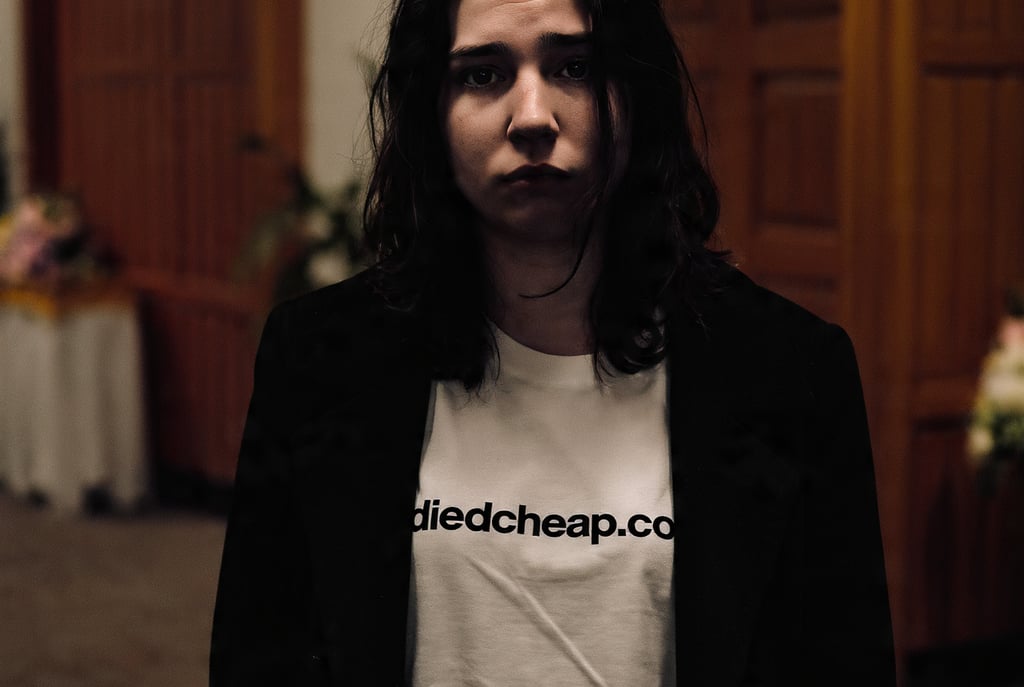The Year I Buried My Mom: A Heartfelt Journey
Explore the emotional journey of loss in 'The Year I Buried My Mom Instead of My Future.' Reflect on the impact of a mother's death and the healing process that follows.
MONEY TRAUMA
Luna Mace
11/16/20255 min read


PART 2: “The Year I Buried My Mom Instead of My Future”
By Luna Mace
I always thought the biggest thing standing between me and college would be my GPA, or maybe my inability to pretend that group projects were anything other than free labor for the one overachiever who cared too much.
Turns out, the biggest obstacle wasn’t my grades, my ambition, or my desire to escape my small, suffocating town.
It was a funeral bill.
One stupid, heavy, mahogany coffin and a stack of itemized charges with words like “preservation,” “embalming cosmetics,” and “vault lining fee,” all written in a font so polite it should be illegal. It’s almost impressive how bureaucracy can curate despair into 12-point serif.
Everyone kept telling me, “Luna, you’re strong, you’ll get back on your feet, college will always be there.”
Yeah, okay.
So will the debt collectors.
It wasn’t even just the money.
It was the time — the invisible cost nobody warns you about, the hours grief quietly steals from you while you’re too busy filling out forms, answering condolence messages, signing papers you don’t fully understand, and figuring out how to continue existing when half your world suddenly stops.
People think funerals last a day.
That’s cute.
Funerals last a lifetime.
The price tags echo long after the flowers rot.
My story didn’t end at the cemetery. It barely began there.
The year everyone else picked dorm rooms, I picked up a second job.
I didn’t even cry in the financial aid office — I wish I had, actually, because maybe then someone would have taken pity on me and invented a scholarship on the spot. But grief is weird like that. It doesn’t show up when you ask it to. Mine preferred to punch me in the throat at 3:17 a.m. while I was stacking dishes after the late shift at the diner.
I remember sitting in the parking lot once, watching a girl from my school drive slowly past in her shiny little freshman-year car, the kind with bumper stickers about majoring in psychology or feminism or whatever cause fit in a pastel font. She waved. I didn’t wave back.
It wasn’t her fault.
But it felt like it was.
She posted pictures later of her dorm room — two girls hugging under string lights, holding iced coffees like trophies. The caption said something like, “First day of forever.”
And me?
I was holding a microfiber towel that smelled like sour lemon cleaner, wiping down a table where someone had spilled ketchup, my spine aching like I was eighty.
Not exactly Instagram-worthy.
I wasn’t resentful of her personally — I was resentful of a world where some people’s moms leave behind tuition funds and sweet handwritten notes about following your dreams… while others leave behind bills.
Life isn’t fair.
But the funeral industry seems to take that as a personal challenge.
Grief doesn’t care about application deadlines.
Colleges have this thing called “personal statements.”
Apparently, you're supposed to explain why you’re unique, why your life story means you deserve a spot in their overpriced Hogwarts castle of higher learning.
I tried to write mine.
It went like this:
“My mother died, and I had to pick up extra shifts to pay for her funeral, so I missed the deadline.”
I deleted it.
It sounded like a GoFundMe.
Then I tried again:
“My life experiences have shaped me into a hardworking and resilient young woman ready for academic rigor.”
Too robotic.
Too polished.
Too fake.
Because the truth wasn’t pretty. The truth was that I wasn’t ready for academic rigor — not because I couldn’t handle it, but because grief had taken a crowbar to the part of my brain that cared about deadlines and SAT scores.
I couldn’t focus. I couldn’t remember things. I couldn’t even read a paragraph in a textbook without feeling my chest tighten like a fist.
The funeral took my time, and grief took my clarity.
I wasn’t stupid — but I was exhausted. Mentally, emotionally, financially obliterated.
No personal statement prompt has a bubble for that.
My dad kept saying we’d figure it out. But figuring it out takes money.
We didn’t have any left.
After the funeral, it felt like we had entered a long-term relationship with poverty — one of those toxic relationships where you want to break up but your car won’t start (if you even have one), the bills are due, and you’re already emotionally exhausted.
Every time we thought we could breathe, another invoice arrived.
Cemetery maintenance fees.
Stone engraving fees.
The “final payment reminder” printed in red.
My dad started picking up extra weekend shifts, and I started doing the kind of gig jobs teenagers do when they have no wealth safety net: babysitting, bussing tables, folding laundry, walking neighbors’ dogs — whatever kept the lights on.
College brochures kept coming in the mail.
Blue skies, smiling students, libraries that looked like palaces.
I threw most of them away.
It wasn’t bitterness.
Okay, maybe it was 20% bitterness.
But mostly it was acceptance — a reluctant, stubborn, quiet acceptance that college wasn’t coming anytime soon, not for me.
People love to tell you things will work out. They don’t tell you how long that takes.
One night, after a double shift, I came home smelling like fryer oil and burnt coffee. I sat on my bed — if you can call a mattress on a metal frame a bed — and stared at my mom’s picture on the dresser.
She looked calm in the photo. Radiant. Like someone who would say something annoyingly optimistic like, “Luna, life is long. You’ll find your way.”
But life doesn’t feel long when you’re seventeen and burned out.
It feels like a tunnel with the lights turned off.
Everyone else my age was choosing majors and making friends and decorating dorm rooms.
I was choosing which overdue bill to pay first.
Everyone else was taking campus tours.
I was taking the bus to work at 6 a.m. because I still didn’t have a car.
Everyone else was worrying about midterms.
I was worrying about whether grief ever stops costing money.
The world kept moving. I didn’t.
College wasn’t a door that closed — it was a train that left the station while I was stuck behind the ticket counter filling out a financial form I didn’t understand.
That’s the part nobody tells you:
When you grow up working-class, your life timeline isn’t yours.
Your dreams get rescheduled.
Your milestones get postponed.
Your goals get sacrificed to survival.
My mom’s funeral wasn’t just a day.
It was a detour.
A re-routing of everything I thought adulthood would look like.
And maybe one day I’ll go back to school.
Maybe I’ll get the degree, the dorm room, the iced coffee, the stupid overpriced textbooks.
But right now?
I’m still living in the shadow of a coffin I didn’t want to buy.
And until the last payment is made,
until the last reminder stops coming in the mail,
until we dig ourselves out of the financial grave the funeral industry put us in—
I’ll keep working.
I’ll keep pushing.
I’ll keep surviving.
Because that’s what kids like me do.
We don’t get safety nets.
We get second jobs.
We get delayed dreams.
We get resilience forged in grief and bills and overtime.
And maybe — maybe — one day that will be enough.
After everything I’ve shared about funeral costs and the insane prices I had to pay, I learned there are ways to make these heartbreaking expenses a little less punishing. If you’re looking for affordable caskets that don’t feel like they’re robbing you while you mourn, check out Discount Caskets.
